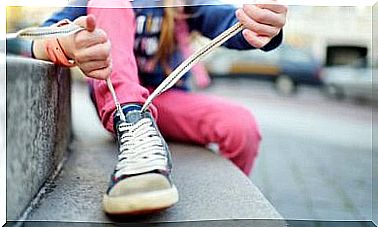4 Rules To Help Your Child Share Things

In this article, we share four tips on how to teach a child to share things.
4 rules to help your child share things
If it is an only child, teach her to share things as if she had siblings
While this may not apply in all cases, it is often more difficult for an single child to learn to share things naturally than for a child who grew up with siblings, as he is the center of his parents ’life from birth. So if you have only one child, don’t raise him so that he starts imagining he deserves everything possible or that he feels that others should treat him like a royal. For example, all family members should, without exception, take part in the housework, and the delicacies brought home should always be shared with the whole family.

However, do not force the child to share
Even if a child is taught to share things, he or she should never be forced into it. When a person is forced to do something, the reaction is often just the opposite of what is desired. Coercion is often met with rebellion, and even if you achieve the desired results with this attitude, it may, at worst, cost your child happiness. So never force your child to share things with others.
For example, if your child doesn’t want their friends to play with their favorite small car, don’t pick up the toy from the child’s hideout or let other children play in the car. With this kind of action, you will only achieve tantrums of anger and you may lose your child’s confidence.
The best option would be to discuss with your child about possible toy sharing even before the other children arrive. Remind them of all those times when they themselves have visited their friends and played with their great toys.
Use every means possible to persuade you to make your child feel confident even when he sees others playing with his favorite toy. However, if this doesn’t work out, don’t force your child to share if he or she doesn’t want to.
You will reach your goal of sharing toys later, be patient.
Teach the child through your own example
Children constantly learn from the adults around them. So the easiest way to teach your child to share is to set a good example for yourself.
You yourself are the best teacher for your child. So if you’re often selfish, as well as possessive of your stuff, you can’t expect your child to behave any differently.
For this reason, in order to teach your child to be less possessive of their toys and goods, you need to do the same yourself.
If it’s a precious or fragile item that your child is interested in exploring, you can show it to him or her in a safe place, such as on a bed. This will prevent potential accidents and nervousness and allow your child to explore, watch and hold the object in peace.
Keep in mind that first the child should see with their own eyes how good it feels to share their own toys and how good it feels when things are also shared with them and trusted in even the most valuable items.
Also share positive feelings

When we talk about sharing, we often think only of sharing our stuff or even food with our friends. Sharing emotions is also important, just like matter. This is important when you are teaching your children to share things.
Hugs, kisses, hugs, caressing words, flirting .. All of these activities tell us that emotional expressions of love must also be shared with others.
Your child should know how it feels to feel loved, and what makes people share expressions of affection with each other, for example, in a hug or kiss when saying goodbye, or in connection with a good deed as a thank you.
If they get the chance to share happiness with someone by even sharing the good news with the other party, then they will too. This, too, is part of sharing with others.
All the good within us should be shared among those around us, including strangers.
Finally, as you teach your children to share things in life, tell them that the evil deeds of others will never be supported. And that they should not base their own decisions and actions on what others do or do not do.
Those who have learned to share things in their lives live happier than those who never do so.









